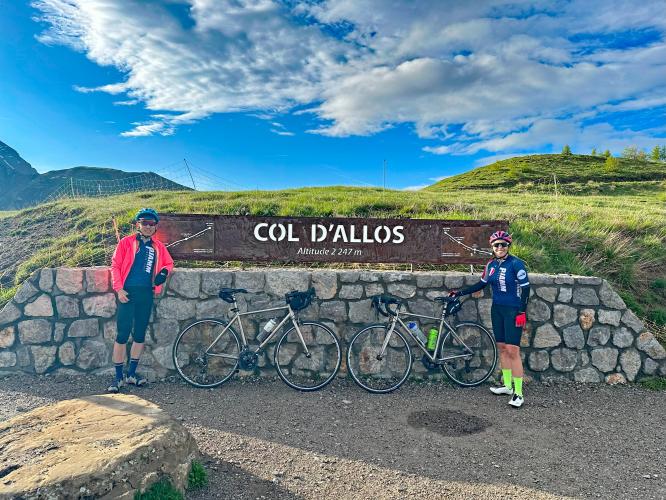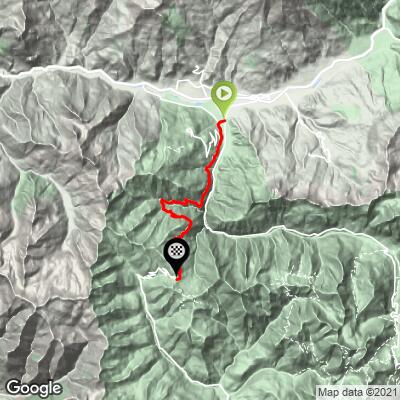![]()
Cycling Col d’Allos nord
Ride 17.4 kilometers gaining 1,075 meters at 6.2% average grade.
Daniel Friebe writes of Cayolle-Allos-Champs in the second of his fabulous cycling duology, Mountain Higher:
“There are not many places in Europe where the cyclist with a head for heights can spend an entire day on a bike, cover barely a metre of flat terrain and conquer three or more giant passes en route to exactly where they started.” p. 186.
![]()
The Col d'Allos is a high mountain pass in the French Alps, situated within the Mercantour National Park in the department of Alpes-de-Haute-Provence. This pass stands at an elevation of 2,250 meters (7,382 feet) and is noted for its beautiful and challenging terrain.
Ride clockwise from Barcelonnette first over Col Cayolle, then Allos and finally Champs before connecting the dots back again in Barcelonnette - PJAMM’s Cayolle-Allos-Champs page. In July and August te Col d’Allos is open only to bicycles on Friday mornings from 8 a.m. to 11 a.m. - talk about bike friendly!
Tour de France
“Between 1911 and 1939, the Col d'Allos barely missed a year in the Tour de France (one of the most popular cols). François Faber was the first rider to cross the pass in 1911 and since then, it has been part of the route 33 times. It was last part of the 2000 Tour, (13th stage) when Pascal Hervé was the first to summit, in 2015 the mountain was again visited by Tour de France at Stage 17 this was won by Simon Geschke.” Wikipedia - Col d’Allos (as of 2018)
![]()
The descent into Barcelonnette is treacherous and was described by Bernard Thévenet as “The most nightmarish moment of the 1975 Tour” - on Stage 15 of that year’s tour on the day Thévenet was first overtaken on Col des Champs by Merckx and later overtook him to take the Tour lead and eventually go on to stand atop the podium that year.
There are 2 routes to Col d’Allos (of course, it’s a pass after all!) - the first is from Colmars (pop. 384, 2008) which is located in the Alpes-Cote d’Azur Region (southeast) of France, near the Italian border. Col d’Allos from Barcelonnette (pop. 2,735, 2008) is the third of the traditional clockwise route of trois col loop and is the more difficult of the 2 approaches to the cols at 6.2% v. 4.5% average grade, although this approach is shorter at 17.4 km v. 20.7. Barcelonnette dates back to medieval times and is the largest town in the Ubaye Valley.

 We've partnered with Sherpa-Map.com to bring you the best route planning tool. With a PRO Membership you can use this climb as a reference when creating your route.
We've partnered with Sherpa-Map.com to bring you the best route planning tool. With a PRO Membership you can use this climb as a reference when creating your route. 

